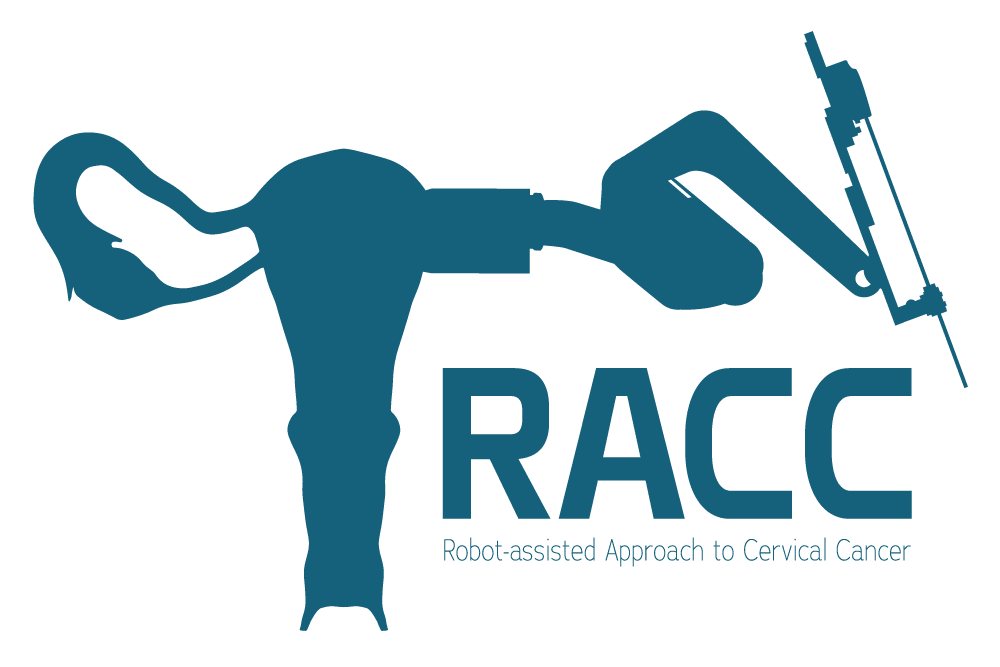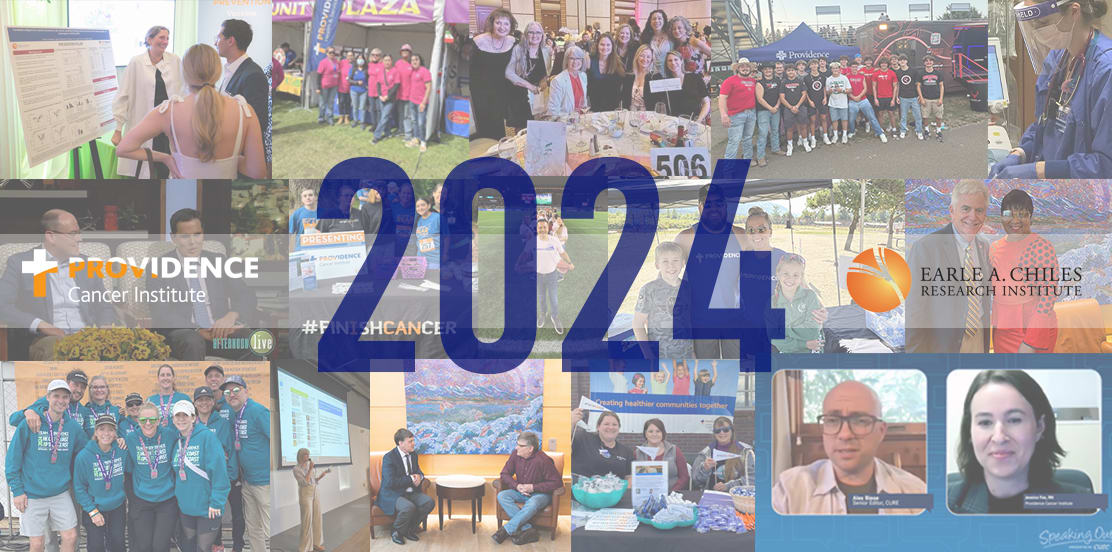Stomach Cancer Care
When you’re a patient at Providence, we don’t just treat your stomach cancer – we treat you. We use the most advanced treatments to create a highly personalized care plan. We also support you and your loved ones with a full range of services throughout your entire cancer journey. The result is effective, whole-person care for your body, mind and spirit.
Why Choose Us for Stomach Cancer Care?
At Providence, we see the life in you. Together, let’s finish cancer – so you don’t have to miss any of life’s special moments.
About Stomach Cancer
Stomach cancer, also called gastric cancer, is a type of gastrointestinal cancer that forms in the stomach’s inner lining. The expert oncology teams at Providence use the most effective therapies to treat patients with every type of stomach cancer and its related conditions.
Testing and Diagnostics

Diagnostic tools help our cancer clinicians determine which therapies will work best for each patient, based on many factors like cancer type and the genetic or molecular profile of the tumor. Your doctors will use multiple advanced diagnostic and prognostic tools to help design your individualized treatment plan, including:
- Biopsy
- Endoscopic ultrasound
- Fine needle aspiration (FNA) biopsy
- Genetics and genomics
- MRI
- PET/CT scan
- Ultrasound
- Upper endoscopy
Personalized Treatment for Stomach Cancer
We take a team approach to your stomach cancer treatment because we know this offers the best success in controlling and curing cancer. Your multidisciplinary cancer care team will work with you to design an individualized cancer care plan, from diagnosis to post-treatment support. We offer many different therapies across our Providence locations. Depending on your condition, your personal care plan may include one or more of the following:
Systemic therapies travel through the bloodstream and affect cells in other body parts. They are used for patients whose cancer has spread to other areas of the body or if there’s a high risk of spread. Sophisticated genetic analysis allows us to target therapies to specific DNA mutations that cause cancer cells to develop and grow. Systemic therapies include:
Biologic therapies are a type of drug treatment derived from living organisms such as proteins or yeasts. One type of biologic therapy is monoclonal antibodies. These are laboratory-produced agents that target and bind to biologic entities such as receptors on cancer cells.
Chemoradiotherapy combines the use of chemotherapy and radiation at the same time. When given together, the two treatments are more effective than when given in sequence. This approach is often used when a cancer is advanced but has not spread to distant parts of the body and therefore may respond to more intense therapy.
Chemotherapy is the systemic use of cytotoxic chemicals to kill cancer cells. Today there are many medications (e.g., biological medications, immune treatments, targeted therapies) that do not fit the classic definition of chemotherapy yet are often included in this category.
Clinical trials represent research protocols that include the use of new drugs or drug combinations in a specific clinical situation.
Immunotherapy uses drugs to allow the body’s own immune system to more effectively find and destroy cancer cells.
Molecularly targeted therapy is the use of drugs that are molecularly targeted at a genetic mutation that has allowed the cancer to grow. This therapy enables personalized treatments for patients who carry certain genetic mutations or abnormalities.
Surgical therapies involve an operation or procedure to remove cancer from the body. Surgery may be the main treatment for some invasive cancers, but it’s only one part of the entire treatment plan. Surgical therapies include:
Distal gastrectomy is surgical removal of cancer in the lower part of the stomach. Part of the small intestines may also be removed.
Regional nodal dissection, also referred to as regional lymphadenectomy, is the surgical removal of lymph nodes near a tumor. The nodes are then checked for the presence of cancer cells.
Subtotal or total gastrectomy is surgical removal of all or part of the stomach.
Radiation therapy uses high-energy radiation from a source like X-rays or photons to kill cancer cells or shrink tumors. It may be part of a treatment plan that also includes systemic therapies and/or surgery. Radiation is sometimes used to help ease a patient’s pain or discomfort. Radiation therapies include:
Intensity-modulated radiation therapy (IMRT) and volumetric-modulated arc therapy (VMAT) are advanced types of radiation therapies. IMRT uses advanced technology to manipulate the radiation beams to conform to the shape of a tumor. VMAT is a subtype of IMRT in which the machine actively delivers radiation beams while moving in an arc around the patient.
This method of radiation delivery offers next-generation capabilities. The arc-based therapy provided via VMAT delivers high doses of radiation to more focused areas, reducing side effects and the overall treatment time for the patient. This treatment is particularly effective at treating several types of cancer while at the same time reducing toxicity and harm to vital organs.
This procedure is one of several new ways to deliver radiation therapy. It requires a sophisticated facility and equipment, along with highly specialized physicians. It is available at some Providence locations.
Surface-guided radiation therapy (SGRT/SIGRT) is an approach to radiation targeting that offers real-time beam guidance from face and body surface-recognition systems.
This treatment is particularly effective at treating several types of cancer while at the same time reducing toxicity and harm to vital organs, thus minimizing side effects.
This advanced procedure requires a sophisticated facility and equipment, along with highly specialized physicians. It is available at some Providence locations.
Three-dimensional conformal radiation therapy (3DCRT) is a radiation planning and treatment technique in which three-dimensional (3D) imaging enables improved targeting for radiation treatment. 3D planning with CT imaging makes radiation treatment much more conformal, or tailored to the target.

Part of Providence Cancer Institute of Oregon
Providence Cancer Institute is a leading provider of cancer care in Oregon, and part of the largest community-based cancer-care network in the United States. Regardless of where you go for care, you have an entire team of cancer experts working together to provide a personalized, whole-person approach to your care. At Providence we see more than a cancer diagnosis, we see the life in you and are committed to helping you live well again.
Find Stomach Cancer Care Close to You
Accreditations
We are proud to see our dedication to our cancer patients recognized by the most well-respected programs and institutions in the United States. Several of our Providence locations have achieved the following accreditations:
- Accountable Care Organizations (ACO) Accreditation – National Committee for Quality Assurance (NCQA)
- Accreditation – American College of Radiology (ACR)
- Accreditation Program for Excellence (APEx) – American Society of Radiation Oncology (ASTRO)
- Commission on Cancer (CoC) Accreditation – American College of Surgeons (ACS)
- Integrated Network Cancer Program (INCP) – American College of Surgeons (ACS)
- Quality Oncology Practice Initiative (QOPI) Certification – American Society of Clinical Oncology (ASCO)
Meet the Team
At Providence, you'll have access to a vast network of dedicated and compassionate providers who offer personalized care by focusing on treatment, prevention and health education.

Find Clinical Trials
Are you looking for a clinical trial for yourself or for a patient? We’d love to help you find one!
Find Care
Expert Tips and Advice for Cancer





